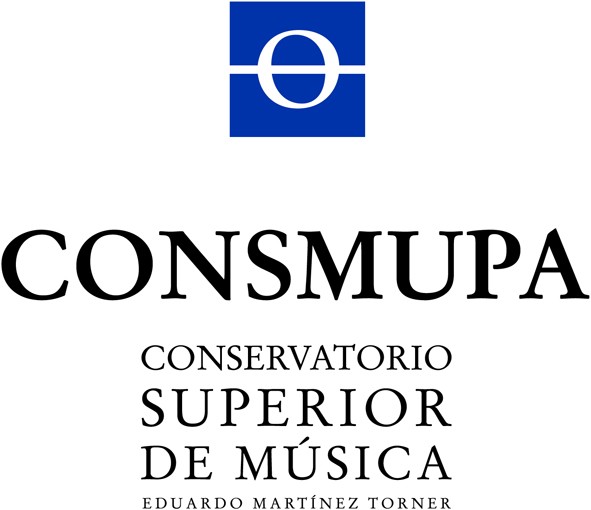General Information
The academic community of CONSMUPA is formed by 80 professors, 300 students and 11 administration and service staff members. The premises are open from 8:00 a.m. to 10:00 p.m.Each academic year there are about 75 chamber music ensembles, two orchestras (one symphonic and the other dedicated to chamber music), a symphonic band, brass ensembles, as well as saxophone and percussion bands. Cello, tuba and trumpet bands function as extracurricular formative activities.
The Development and Communication Department organizes over 120 public concerts a year so that students can gain real artistic experience performing as a soloist or in ensembles, which will improve their chances in the world of work.
The premises are equipped with 50 classrooms, 20 practice rooms, a concert hall, a chamber music room, a library (with music and video resources), a multi-purpose room, an electro-acoustic laboratory and a computer room.
More than 170 courses, either practical or theoretical (compulsory or elective), are offered. There are 7 teaching departments: Singing and Ensembles, Composition and Theory of Music, Improvisation and Accompaniment, String Instruments, Keyboard Instruments, Woodwind Instruments, and Brass and Percussion Instruments.
Each year, CONSMUPA invites esteemed collaborating professors to give courses and master classes, so that the students get to experience different ideas and ways of working, as well as develop their musical conscience and positive self-criticism. There are also two annual meetings dedicated to intensive practical training in the symphonic band / orchestra in collaboration with different conductors
CONSMUPA has been implementing the Bologna structures since 2010. All Bachelor degrees are a duration of 4 years (240 ECTS). The following Bachelor degrees have been established: Composition, Conducting, Performance (Accordion, Voice, Harpsichord/Organ, Strings / Brass / Percussion, Guitar, Piano) and Pedagogy (Accordion / Guitar, Voice / Strings /Brass / Percussion, Harpsichord / Organ, Piano).
There are 3 types of courses: basic compulsory (A), major compulsory (B) and elective (O). Students must enrol in 60 ECTS during their first year of study and reach 240 ECTS at the end of the studying period. The number of ECTS of Elective Courses to be taken depends on the major (you can see the curricula in our webside).
Major
Major in Composition
Major in Conducting
Performance - Accordion
Performance - Voice
Performance – Harpsichord / Organ
Performance – Strings / Wind Instruments / Percussion
Performance - Guitar
Performance - Piano
Pedagogy- Accordion / Guitar
Pedagogy – Voice / Sstrings / Wind Instruments / Percussion
Pedagogy- Harpsichord / Organ
Pedagogy - Piano






